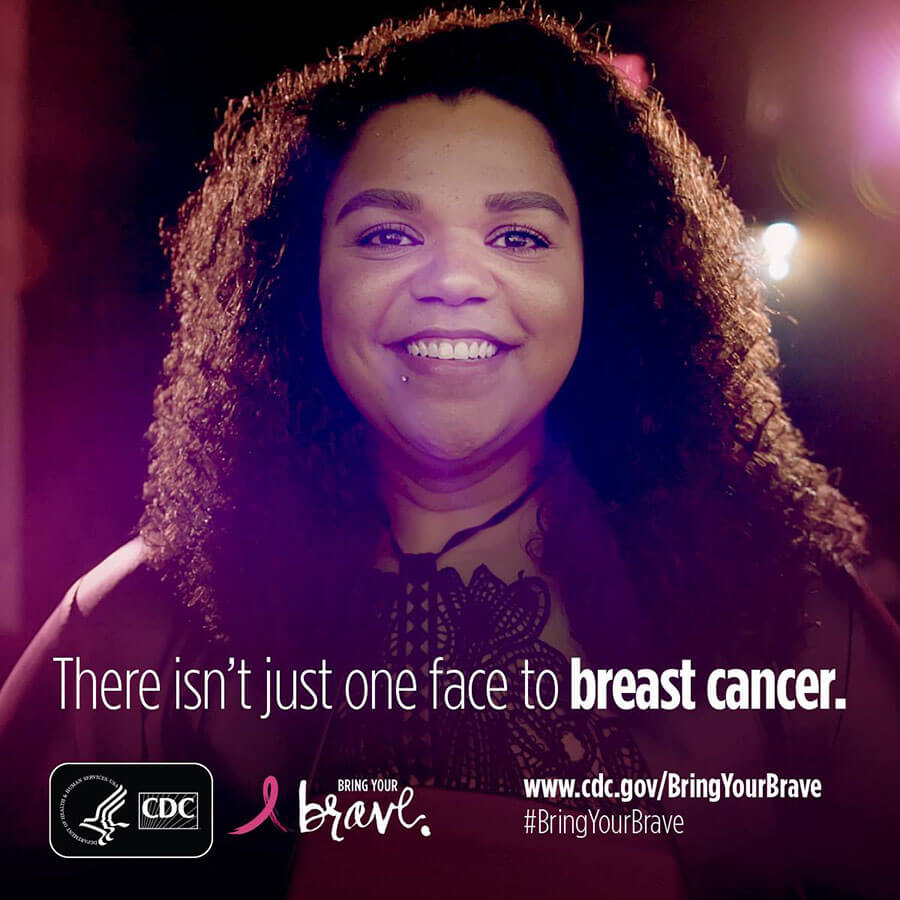I was sitting next to her as she told her story of being diagnosed with inflammatory breast cancer at the age of 27. It wasn't the first time that I had heard a young woman talk through diagnosis and treatment of aggressive breast cancer, but I had to fight back tears while listening to Charity speak. Our entire video production team was struggling not to cry. What was it about her situation that captured all of us? Was it hearing Charity talk about her initial doctor’s visit and being told that the lump in her breast was probably nothing? Or maybe it was hearing her say that the next time she saw a doctor about it was in the emergency room, when the cancer had eaten through her breast and she had to be hospitalized, receive several rounds of chemotherapy, and later have a non-skin sparing double mastectomy. It could have been the moments when she talked about coming to terms with infertility at such a young age. I’m not sure which part of Charity’s story drew us in, but I do know that the experience of hearing and capturing stories like hers was a powerful experience for me and the production team of the Bring Your Brave educational campaign.
 The Centers for Disease Control and Prevention (CDC) launched the Bring Your Brave campaign in 2015 to provide information about breast cancer to women younger than age 45. Our campaign tells real stories about nine young women whose lives have been affected by breast cancer. These stories about prevention, risk, family history, and survivorship bring to life the idea that young women can be personally affected by breast cancer. Through these testimonials, Bring Your Brave aims to inspire young women to learn their risk for breast cancer, talk with their health care provider about their risk, and live a breast-healthy lifestyle.
The Centers for Disease Control and Prevention (CDC) launched the Bring Your Brave campaign in 2015 to provide information about breast cancer to women younger than age 45. Our campaign tells real stories about nine young women whose lives have been affected by breast cancer. These stories about prevention, risk, family history, and survivorship bring to life the idea that young women can be personally affected by breast cancer. Through these testimonials, Bring Your Brave aims to inspire young women to learn their risk for breast cancer, talk with their health care provider about their risk, and live a breast-healthy lifestyle.
Breast cancer is the most common cancer among women in the United States. About 1 in 8 women will get breast cancer during her life. Although most breast cancers are diagnosed in older women, in rare cases breast cancer does affect women under the age of 45. About 11% of all breast cancer cases in the United States are found in women younger than 45 years of age. Breast cancer in young women is more likely to be hereditary than breast cancer in older women and more likely to be found at a later stage, when it is often more aggressive and difficult to treat. Many young women do not know their risk for breast cancer or ways to manage their risk. We are working to close this knowledge gap for young women and health care providers and empower both in facing this disease. For more information about breast cancer in young women or to learn more about the Bring Your Brave campaign, visit our website or follow us on Facebook, Twitter, and Tumblr.

